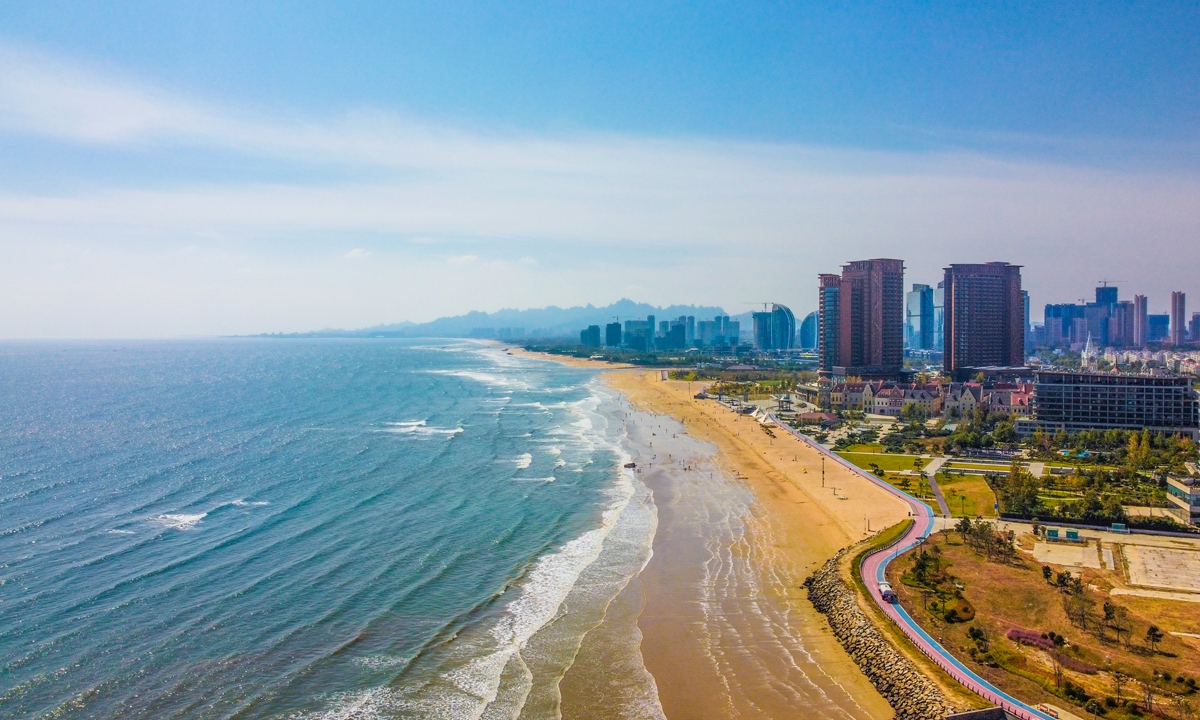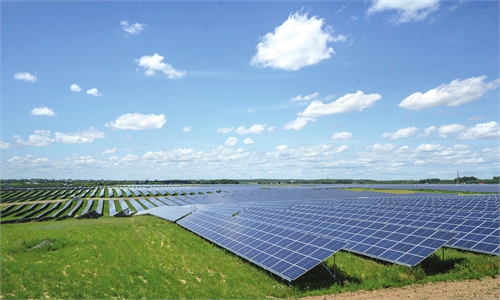
A seaside view of Qingdao. Photo: VCG
Reading the conclusion of Herman Melville's Moby Dick, I was profoundly saddened by the tragic destiny of Captain Ahab and his "prey" Moby Dick, representing the contrasting relationship between humanity and the natural world.However, humans can only have a sustainable life by loving and respecting nature instead of plundering and overusing it. This view reminds me of my childhood when my parents and I visited Qingdao, East China's Shandong Province, where people were in harmony with their marine counterparts.
At the Qingdao Golden Beach, known for having one of the best beaches in Asia, we gathered delicate shells and beautiful conchs of different shapes and sizes.
We delighted in the succulent and flavorful sea cucumbers, abalones and crabs during the evenings. Our experience at Golden Beach was thrilling and unforgettable.
Today, China has made significant improvements in conserving its coastal and marine ecosystems.
This is evident in Qingdao, where the "Blue Bay" remediation and restoration project, initiated in 2016, has successfully rehabilitated 6 million square meters of aquaculture ponds in the sea area. Furthermore, over 30 sewage outlets leading to the ocean have been rectified, and an impressive 2.2 million square meters of land has been greened.
In Chengdu, located in inland China more than 1,600 kilometers away from Qingdao, I can now enjoy fresh oysters, salmon and squid from Qingdao.
The hustle and bustle in Qingdao Agricultural Wholesale West Coast Market is an eloquent testimony to the booming business.
At 1:30 am, aquatic wholesalers' stalls are already packed with hordes of merchants worldwide. At 3:30 am, the trading of marine products such as fish, shrimp and crab hits an all-time high. Before dawn, everything is sold out.
My uncle, a seafood wholesaler in Shandong who exports chum salmons to Japan and South Korea, told me that "China's increasingly mature marine ecosystems have led to a more advantageous living environment for salmon."
Just a decade ago, with the ever-warming temperature, pollution and deterioration of the marine environment, China witnessed a sharp slump in the number of chum salmon and was even concerned about the complete extinction of this species.
However, according to recent reports, China's Shandong Province has begun to produce chum salmon, indicating that its progress in marine ecological protection has grown by leaps and bounds over the past decade.
China's efforts in creating a favorable environment for man and nature align with its idea of building a marine community with a shared future for humanity, which would provide Chinese approaches and wisdom for global ocean governance. By enhancing multilateral cooperation in marine research, ocean development, protection, and the like, China has boosted its blue economy and partnership, rendering the 21st Century Maritime Silk Road all the more inviting and exciting.
The primary objective of maritime cooperation and governance is to advance the collective welfare of humanity. The notion of a "maritime community with a shared future" embodies the traditional Chinese principle of harmonizing humanity and nature, surpassing the Western ideology of expansionism. It epitomizes a dynamic community between humans and the natural world.
The author is a postgraduate student at Chengdu Normal University. opinon@globaltimes.com.cn

